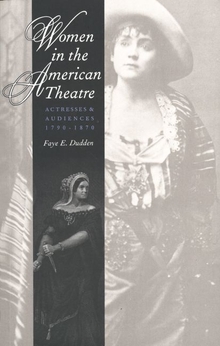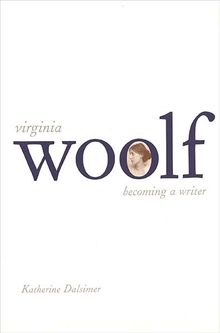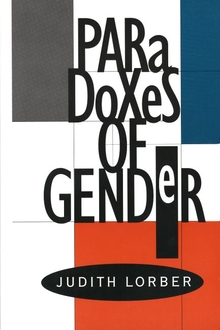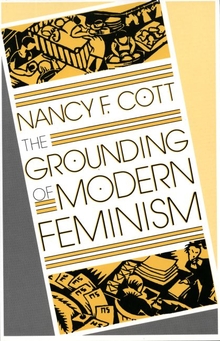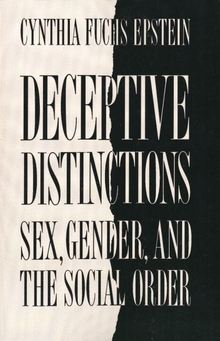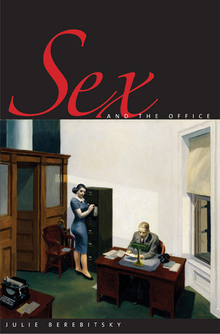Women in the American Theatre
WARNING
You are viewing an older version of the Yalebooks website. Please visit out new website with more updated information and a better user experience: https://www.yalebooks.com
Actresses and Audiences, 1790-1870
Faye E. Dudden
According to Dudden, theatre in the early republic was predominantly an aural experience and a marginal, fly-by-night operation, and women were able to find opportunities for successful careers as performers and managers. But after 1860, as the theatre was organized by entrepreneurs into a more systematic, profit-seeking enterprise, women's opportunities narrowed. They were increasingly excluded from management, and the commercial popularity of visual spectacles focused attention on their bodies rather than on their acting abilities. Dudden's lively study thus provides new insights into the relations among gender, popular culture, and American capitalism, showing how women became products in the entertainment marketplace even as they sought increased freedom in their everyday world.
"A delightful book, which should be of use to scholars and students in history, American studies, women's studies, and theatre history."—Joyce Flynn, Harvard University
"Dudden's impressive historical documentation reinforces her uses of feminist performance theory. She provides new and personal ways to expose the questionable star status of women performers in these decades."—Choice
"Faye Dudden has produced not only a sophisticated and elegant portrait of the lives of theatrical women but a fascinating survey of nineteenth-century American theatre history. . . . Riveting. . . . Dudden provides a fascinating window into the nineteenth-century theatre and a larger portrait of many of its key participants. One comes away from this book feeling respect, even guarded reverence, for the ambitious and hard-working feminine pioneers of the American stage whom Faye Dudden has lifted from obscurity."—Laura McCall, Journal of the Early Republic
"An intriguing thesis. . . . Dudden mines new ground by connecting contemporaneous feminist ideas to biography, commodity capitalism, intra- and inter-playhouse dynamics."—Tracy C. Davis, Theatre Journal
"Because of its substance, feminist interdisciplinary approach, and the contemporary resonance of its argument, this book makes a significant contribution."—Kim Marra, Theatre Survey
"Dudden's book is best early on when it shows how women could also resist commodification through the self-transformation offered by the stage; such individual experiments with identity questioned cultural notions of gender. Dudden show[s] that in a culture of contradictory ideologies — particularly of economics, gender, and race — women simultaneously accrue and lose power in a process that is never unequivocal."—Dawn E. Keetley, National Women's Studies Association
"This is a solid work of theatrical scholarship, very well researched and clearly written. Although her study focuses on actresses and women in the audience, Dudden's perceptive observations cover broader theatrical ground. Hers is, in fact, one of the most intelligent and up-to-date short introductions to mid-nineteenth-century theater now available."—Benjamin McArthur, American Historical Review
"A historical analysis that can truly be seen as adding, not only to our fundamental knowledge of the period, but also to a raft of work which together are developing a culturally pregnant and politically astute manifesto for theatre history. . . . This is a history of a theatre industry as well as a theatre culture evolving across a century of complex revolutionary change in Western society and it is a history through which Dudden guides us expertly and provocatively."—Adrienne Scullion, Theatre Research International
"[A] thoughtful and well-researched book about the objectification of women in the 19th century American theatre. . . . [An] insightful, measured commentary."—Kay M. Robinson, Journal of American Culture
"Authoritative and challenging, this volume makes a significant contribution to the field of American studies and American theater. It is assiduously researched, lucidly written, and persuasively argued. In this book, author Faye E. Dudden provides new insights into the relations among gender, popular culture, and American society as she explores the various ways women were involved in the American theater—as actresses, managers, playwrights, and audiences—from the earliest years of the republic to the days just after the Civil War. . . . The book should be of interest to general readers, students and scholars working in women's studies and early American theater."—Zoe Detsi, American Studies
"A fascinating and important work of history both for the story it has to tell and the way in which it is told. Pleasurable and useful reading experiences are rare enough; this is one of them."—Jean-Christophe Agnew, Yale University
Publication Date: February 27, 1997
51 b/w illus.

